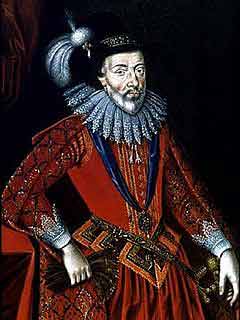

William Stanley, 6th Earl of Derby, KG (1561–29 September 1642) was an English nobleman and politician. Stanley inherited a prominent social position that was both dangerous and unstable, as his mother was heir to Queen Elizabeth I, under the Third Succession Act, a position inherited in 1596 by his deceased brother's oldest daughter, Anne, two years after William had inherited the Earldom from his brother. After a period of European travel in his youth, a long legal battle eventually consolidated his social position. Nevertheless, he was careful to remain circumspect in national politics, devoting himself to administration and cultural projects, including playwriting.
His own literary works are lost or unidentified, but in the 1890s he was put forward as one of the contenders to be the true author of the works of William Shakespeare, according to some proponents of the Shakespeare authorship question.
William Stanley was a younger son of Henry Stanley, 4th Earl of Derby, by his marriage to Lady Margaret Clifford. His maternal grandparents were Henry Clifford, 2nd Earl of Cumberland, and Lady Eleanor Brandon. Eleanor was the third child of Charles Brandon, 1st Duke of Suffolk, and of Mary Tudor. Mary was the fifth child of Henry VII of England and Elizabeth of York. His mother was the heiress presumptive of Queen Elizabeth from 1578 until her own death in 1596. After this, Anne Stanley, the daughter of his older brother Ferdinando, became the heir to the throne.
Stanley was educated at St John's College, Oxford. In 1582 he travelled to the continent to study in university towns in France and may also have attended Henry of Navarre's academy at Nérac. In 1585 he returned home, but was once more sent to Paris as part of an embassy to Henry III of France. He then remained on the continent for a further three years of personal travels before returning home once more. He may have been accompanied on his travels by the young John Donne.
During his travels, William Stanley is said to have led an adventurous existence, being involved in duels and love affairs and travelling in disguise as a friar while in Italy. He is supposed to have also visited Egypt, where he fought and killed a tiger, then going on to Anatolia, where it is claimed he narrowly escaped being executed for insulting the prophet supposedly released because a Muslim noblewoman wanted to marry him. According to the story, he turned her down, travelling on to Moscow and then to Greenland, from where he returned to Europe in a whaling ship.